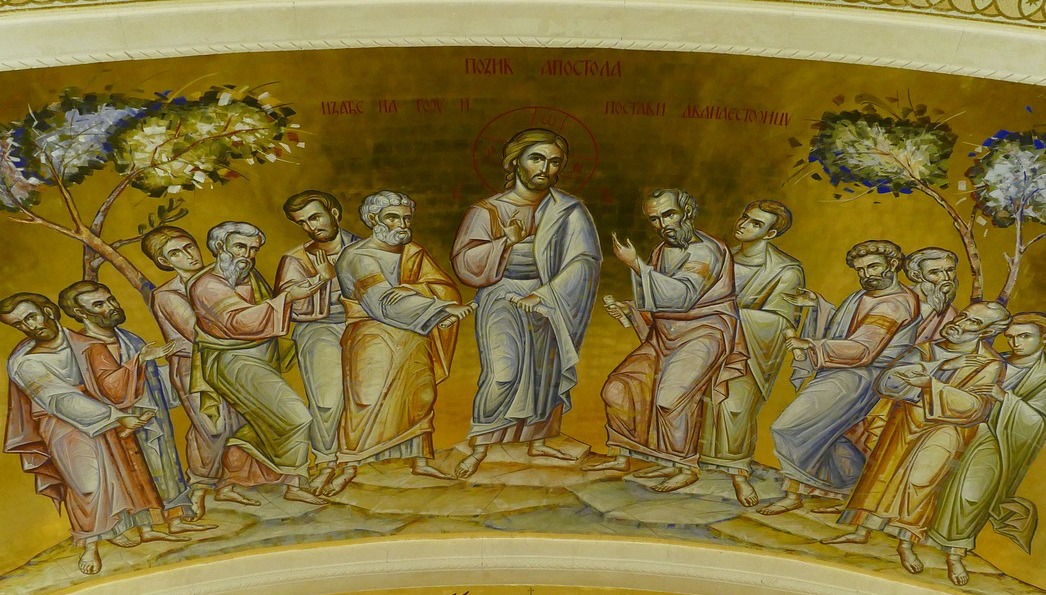
The following is part of an ongoing series by Dr. Norman McCrummen. We’ll be publishing another one of his reasons every week, so stay tuned! Read previous installments: Introduction – First Reason – Second Reason – Third Reason
I am Catholic because I believe in the communion of saints.
“Therefore, since we are surrounded by so great a cloud of witnesses, let us also lay aside every weight and the sin that clings so closely, and let us run with perseverance the race that is set before us, looking to Jesus the author and finisher of our faith” (Hebrews 12:1–2).
The holy assurance we have is that the saints in heaven and on earth who love us are cheering for us (praying for us!) as we go through the trials of life. They want for us what is good and holy and life-enhancing; for that reason they pray for us.
And who are the saints? They are the men and women who know and love the Lord, who delight in Him and His commandments, and who have found life abundant in Him. They are the children of God whose hearts overflow with charity, agape love. They are on earth and in heaven.
As the children’s hymn expresses it: “They loved their Lord so dear, so dear, and God’s love made them strong; and they followed the right, for Jesus’ sake, the whole of their good lives long. And one was a soldier, and one was a priest, and one was slain by a fierce wild beast: and there’s not any reason, no not the least, why I shouldn’t be one too.”
Another hymn, “For All the Saints,” gives us this description of the saints and our relation to them: “Thou wast their rock, their fortress, and their might; Thou, Lord, their captain in the well-fought fight; Thou, in the darkness drear, their one true light. Alleluia! Alleluia! O blest communion, fellowship divine! We feebly struggle, they in glory shine; yet all are one in Thee, for all are Thine. Alleluia! Alleluia!”
The saints are the members of the Church: those who are here and those who are with the Lord.
Regarding prayers to the saints in heaven, Protestants have asked, “Why do Catholics pray to dead people?” The question makes perfect sense if one believes that the dead in the Lord are in an unconscious state, but Catholics do not believe that. The dead in the Lord are more alive than ever. Yes, their bodies are dead, but their essence — their soul — is perfected or being perfected. On the day of Resurrection, when Christ returns, our new bodies will be united with our souls. (Remember: The fusion of body and soul, as was seen by those who looked upon the resurrected Jesus, was so dazzling as to make Him all but unrecognizable.) Nevertheless, that future glory in no way diminishes the glory which saints in heaven enjoy today. To our great relief, their memory is not dimmed by looking into the face of Jesus; just the opposite, they remember the struggles that are ours, and they ask Jesus to do for us what we can’t do for ourselves.
We should never hesitate to ask the saints in heaven to pray for us. We ask our neighbors and relatives and friends to remember us in prayer, and for good reason. Why then wouldn’t we ask those who are in the visible presence of Jesus to do the same? Why would we not ask His Mother to take our petitions to her Son? Or ask Saint Francis? Or Padre Pio? Or Saint Therese, the Little Flower? If one believes the Creed (that there is indeed a communion of saints), why wouldn’t one fully employ communion with those who are seeing Jesus now?
On a personal level, I have an example of that communion that is inexpressibly dear to me. It’s not an example such as I have just mentioned, asking the great saints whom virtually everyone recognizes as intercessors; rather, it’s an example of those saints who are in that great cloud of witnesses of which the author of Hebrews wrote. Some years ago I found a brief note written to me by my father. It may have been attached to something he gave me. I don’t remember, but the message implies that it was. In his hand, it says, “For Norman, with love boundless and everlasting, Daddy.” During the years that I had a study (a true “study,” in addition to an office), I kept that love-filled message taped to the wall facing my desk. My father’s note remains a tender but profound example of the communion of saints, for which I am grateful.
Up Next: Twelve Reasons a Protestant Pastor Became Catholic: The Fifth Reason







Great articles!!!